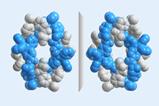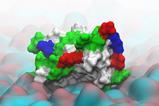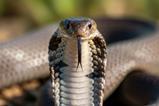Scientific Reports, a journal published by Springer Nature, has been criticised for publishing fraudulent research in an open letter signed by many well-known experts in research fraud. The letter highlights multiple cases where papers have passed peer review despite containing glaring issues, from irrelevant references and ‘tortured phrases’ to nonsensical figures.
The signatories of the letter, including well-known science sleuths Elisabeth Bik, Dorothy Bishop and Guillaume Cabanac, express disappointment over Springer Nature’s ‘inadequate’ response to reports of flawed publications. One notable example cited involved a recently corrected article that had been flagged for containing numerous ‘tortured phrases’, indicative of attempts to bypass plagiarism detection. ‘For it to be negligence would require a remarkable degree of professional incompetence from a handling editor,’ wrote the authors.
Since 2014, 25 articles in Scientific Reports have been flagged for containing tortured phrases. Over the same period, 262 articles have been retracted by the journal, according to a database managed by Retraction Watch, which records why papers are retracted. ‘They’ve published 23k papers in 2024 with article processing charges of £2090, raising £49 million from this journal alone,’ says Bishop. ‘So they should be able to put resource into cleaning this up.’
By comparison, PLOS One, another large open-access journal publishing over 14,000 articles per year, has retracted nearly 500 papers over the same time period, according to the Retraction Watch database.
This discussion comes at a time when retraction rates across scientific journals are climbing, adding to the urgency of identifying and reporting research misconduct, including data manipulation and authorship fraud. The retraction rate for European biomedical-science papers showed a fourfold increase between 2000 and 2021, 67% of which were attributed to research misconduct, including data manipulation and authorship fraud. Another Springer Nature journal, Optical and Quantum Electronics, has retracted over 200 papers since the start of September.
While this increase in retractions can reflect growing cases of misconduct, it could also be explained by improved detection and reporting capabilities. The presence of such a substantial number of flagged articles raises serious questions about the journal’s editorial standards and peer-review process, the authors of the open letter state.
The letter urges Springer Nature to take immediate action to address these concerns, including ‘[employing] a task force of people with the necessary expertise to carry out an urgent audit of all the [academic] editors of Scientific Reports’, the authors write. ‘Detection of problematic articles and editors could be helped by requiring open peer review for all journals,’ the authors advise.
In a statement Chris Graf, director of research integrity at Springer Nature, said: ‘Scientific Reports has an in-house team who are dedicated to ensuring that the journal operates with integrity. They are an excellent team who care enormously about the journal and the research it publishes. They are committed to investigating every issue raised with them, including concerns raised about both editorial board members and papers. They take action where appropriate, which has led to the removal of board members and the retraction of papers.’
‘The paper flagged by Guillaume Cabanac is already under further investigation: we are in the process of finishing our work on that case and I expect further action to be taken shortly.’
‘Fraudulent submissions are a challenge for the entire publishing industry. Ensuring the veracity of the scientific record is a priority for Scientific Reports and everyone at Springer Nature, with our research integrity team dedicated to this goal, and we are continuing to grow and invest in this area. We have increased our full-time employees in pre-checks and in our dedicated research integrity team by almost 200 who, supported by continued investment in detection technology, scrutinise incoming content and address any concerns that may arise either pre or post publication.’
The story was updated with a statement from Springer Nature on 24 October 2024. Correction: The article was updated on 24 October 2024 to note that 25 articles in Scientific Reports were flagged as containing tortured phrases, not 3702 as this figure related to the publisher Springer Nature as a whole.

















No comments yet